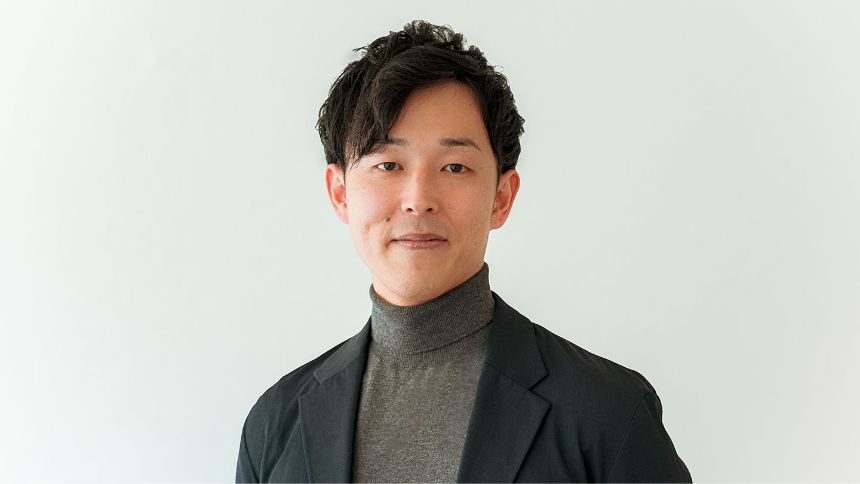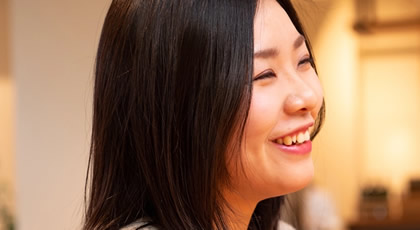
Everyone Is the CEO of Their Own Life: Striving for Liberation of Our True Nature
On November 3, 2024, TYPICA appointed Tatsuya Kasai as its new President. After graduating from Osaka University in 1999, Kasai joined Felissimo, a catalog shopping company, prior to its IPO, where he worked on new business development and corporate alliances. He served as the head of various subsidiaries, including those focused on consulting, e-commerce, and logistics.
With a lifelong commitment to solving social problems through business, Kasai founded PEACE BY PEACE COTTON PROJECT (PBP) in 2008, later formalizing it as a general incorporated foundation in 2017. Aiming to tackle human rights and educational issues related to cotton farming in India, he facilitated the sale of Indian organic cotton products to Japanese consumers through major textile trading companies and apparel firms. By channeling a portion of the sales into the project’s fund, he implemented a regenerative business model that promoted organic agriculture, alleviated poverty among farmers, and supported children’s education in the local community.
So why did Kasai, who has been striving to solve social issues in the cotton industry through an approach similar to TYPICA’s, decide to commit to the company?
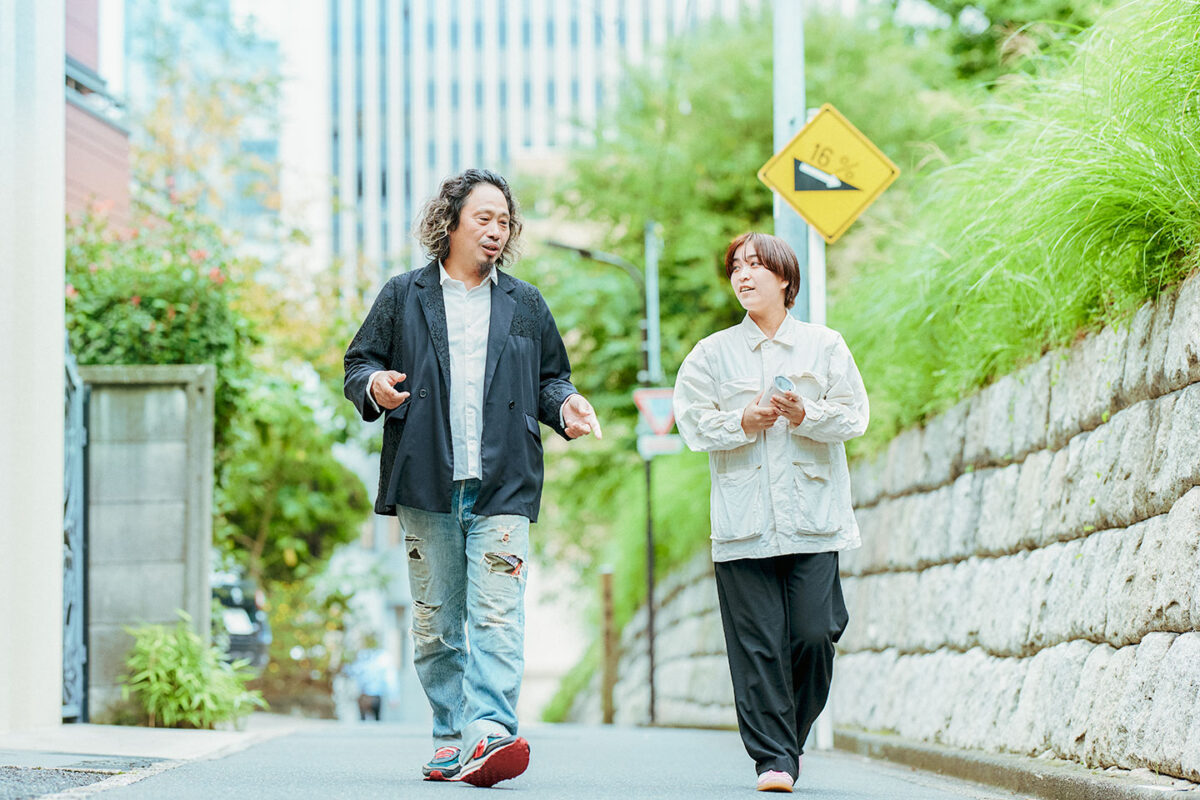
Before I knew it, I was fully committed
In February 2024, Kasai left Felissimo after 25 years and established his own company. To reset his life and conceive new business ideas, he set off on a round-the-world trip. While in the Netherlands, he spent three days with TYPICA’s CEO, Masashi Goto, engaging in deep conversations about public management.
Soon after Kasai returned from his trip, Goto reached out to him. Recognizing Kasai’s expertise and experience in logistics, Goto thought he was perfectly suited to address the logistical challenges that had become a bottleneck at TYPICA.
“Kasai-san, you’re a brilliant and charismatic person,” Goto said. “I’m sure many companies will offer you consulting jobs now that you’ve left your previous position. But I’d hate to see you trading your valuable time just to make a living. If you have any spare time, why not help us at TYPICA instead?”
But Kasai’s response was swift:
“Come on, I just started my own company! After 25 years as a company man, I’ve finally gained independence. I don’t want to go back to being an employee!”
“I understand,” Goto replied. “How about this: could you help us on a contract basis? Let’s start by drafting a master plan for a new logistics model that aligns with TYPICA’s vision. If you find yourself truly passionate about implementing this plan, you can fully commit to TYPICA. If not, you can help us build the team for the new logistics model, and we’ll wrap up the contract.”
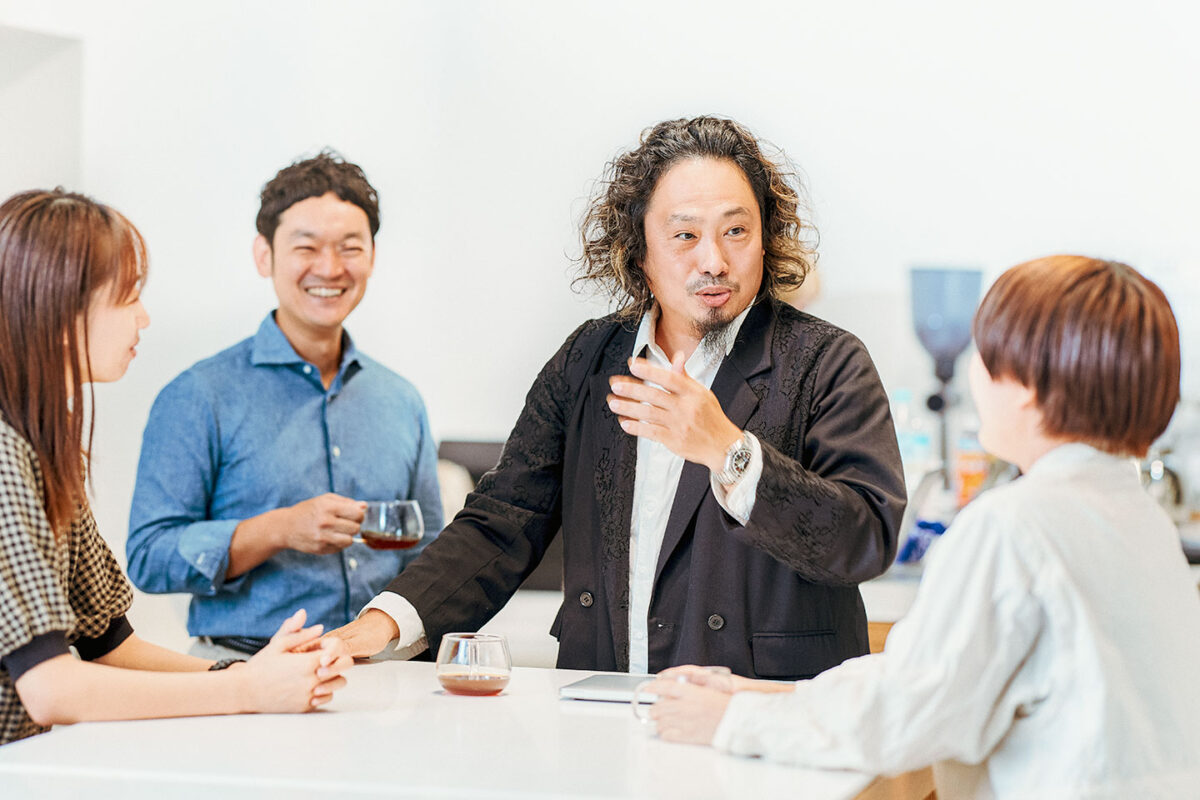
Under those terms, Kasai began his involvement with TYPICA. Initially, he worked on setting up the logistics groundwork and, by consulting external logistics specialists, proceeded to construct its advanced versions.
From a broad international logistics perspective, the necessary improvements and systems to implement were clear. However, when looking toward a future where TYPICA aims for a total trade volume of 400 billion yen, simply solving current issues wasn’t enough. TYPICA’s fundamental role is to mediate between producers and roasters scattered across 84 countries and regions. Kasai began to believe that, for TYPICA’s future, it was more crucial to share the relay-like process – where pre-ordered green beans move from producers to roasters – with the internal team and work on improving it together.
Before long, Kasai found himself going well beyond what a contractor might typically do, dedicating the majority of his time to discussions with the TYPICA staff. As he felt this newfound satisfaction, memories of past disappointments – where his idealistic pursuits had been halted midway – came flooding back.
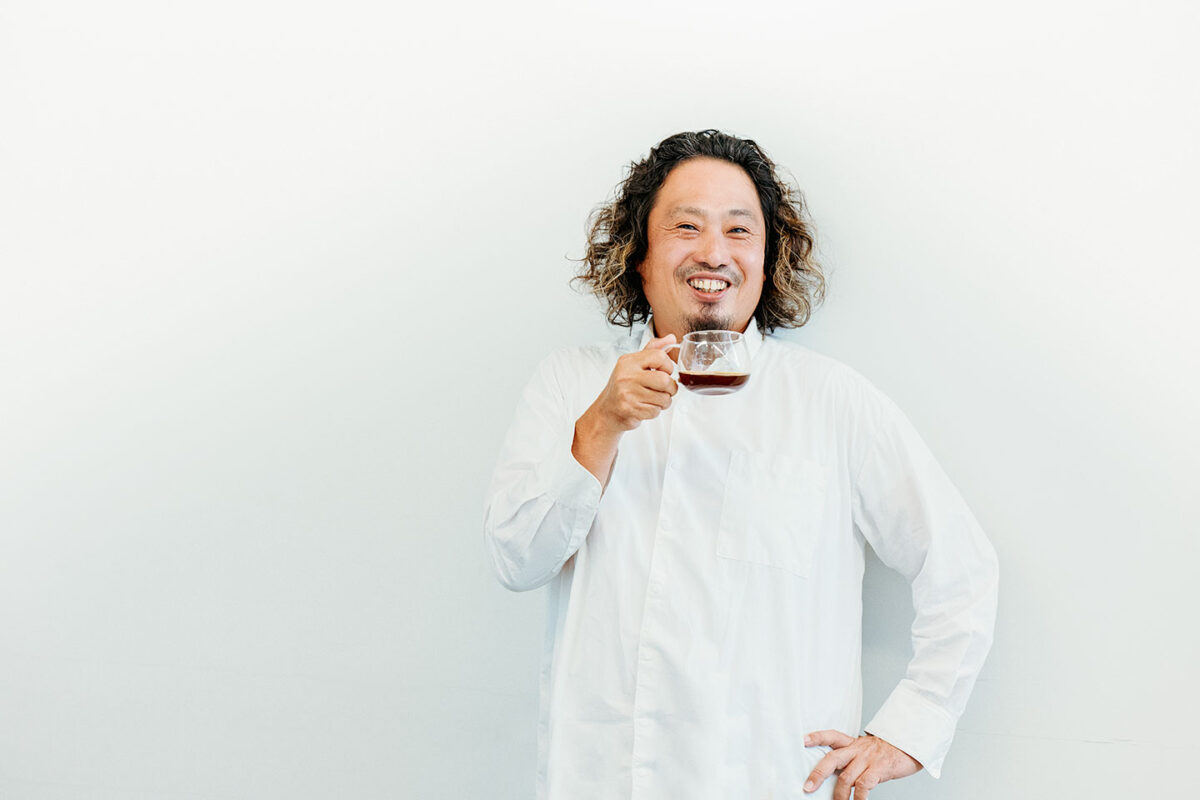
Management as a means to reshape the world
Originally from Gifu Prefecture, Kasai enrolled at Osaka University with the intention of managing a factory his father planned to establish. However, it wasn’t long before he found solace in pachinko parlors and playing in bands.
Already unable to see hope in his future, Kasai was dealt another blow when he learned that his father had been seriously injured on the job. As his father’s dreams crumbled, Kasai lost his own direction. He barely looked for employment, living day by day with a somewhat reckless attitude, thinking it was enough to enjoy the moment.
A turning point came unexpectedly. While working part-time at a bar, Kasai one day confided his true feelings to a regular customer. The customer responded, “You’ve made it into a good university. It’d be a shame to waste that. My company is hiring new graduates right now. Why not apply and see what happens?”
Sporting long hair and Chrome Hearts rings, the man usually arrived around 10 PM, enjoying drinks with a smile until late. Kasai didn’t know much about his job but had heard he was involved in design and traveled abroad for work. Thinking, “If someone like him works enthusiastically there, they probably don’t judge people on superficial things. It could be a fun place to work,” Kasai became keenly interested and applied without even knowing the nature of the business.
He eventually received a job offer, and that company was Felissimo. Their philosophy, “Establishing and Practicing the Sociology of Happiness,” meant they focused on areas where business viability, uniqueness, and social value intersected, making them quite different from other catalog retailers. After the offer, Chairman Katsuhiko Yazaki (Felissimo’s second president and Chairman of the Kyoto Forum) handed him Prince Shotoku’s Seventeen-Article Constitution and said something that left Kasai astonished:
“A company is a public vessel that aims to create a happier society while generating profits. And you are its protagonists. Transition from being a salaryman to becoming a business manager. We’ll support you until you’re 30, but when that time comes, you should build your own companies.”
“Management serves as a means to change the world’s structure – not the ultimate goal.” Imbued with this belief from Katsuhiko Yazaki, Kasai, under the direction of Kazuhiko Yazaki (Felissimo’s third president), spent 25 years passionately working on solving social issues through business, enhancing consumer roles and participation, and pioneering new ventures through partnerships that crossed traditional industry lines.
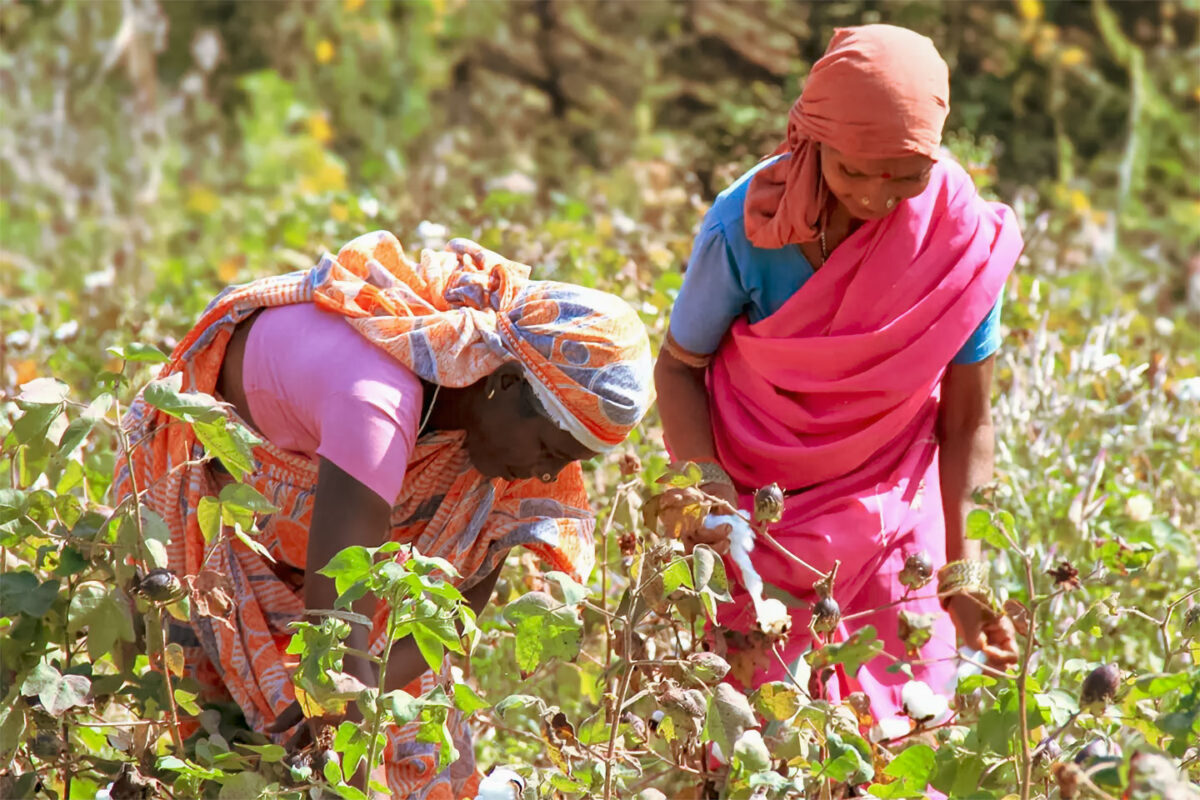
PBP is one such example. They sold 200,000 charity T-shirts designed in response to the 9/11 terror attacks. When they discovered the problems faced by Indian farmers involved in cotton production, they structured a project to provide a regenerative solution, establishing a general incorporated foundation.
As an executive in charge of new business development, he went on to launch multiple projects: a cross-border e-commerce initiative with a major railway company to revitalize regional economies; a CtoC flat-rate shipping service in partnership with a leading messenger app; a regional agricultural products sales business with a major agricultural corporation; and a last-mile delivery joint venture with a top logistics firm. In 2020, he focused on the subsidiary running the fashion brand and e-commerce site “haco!”, transferring there the following year to embark on his managerial journey.
“I aimed to correct social disparities and guide the world toward its ideal state by transforming industry structures through consumer-involved management and expanding globally,” Kasai reflects. “However, we couldn’t recover from the simultaneous impacts of the pandemic and rapid currency fluctuations, and in March 2024, we had to liquidate the subsidiary. Because of my insufficient capabilities, we stumbled at just being an apparel and fashion e-commerce company. That’s precisely why I must not let Goto-san, who studied under the same mentor (Katsuhiko Yazaki) and is pursuing the same ideals, fail.”

Supporting people to excel beyond limits
Similar to commodities like cotton, soybeans, and wheat, coffee shares common structural challenges such as wild swings in international prices due to futures trading and the legacy of slavery and colonialism. Globally, agriculture prioritizes the efficiency of product distribution, often neglecting the individuality of each producer and releasing homogenized products into the market.
“If TYPICA, acting as a bridge between producers and roasters via direct trade, can become a symbolic force that changes global standards, I believe it could influence other sectors, leading to structural reforms in commodity markets and agriculture as a whole,” Kasai says. “Since coffee’s quality, price, and taste (experience) are directly linked, it might be more feasible compared to cotton or soybeans.
People are filled with infinite possibilities when they’re born, but as they grow up, they gradually start to limit themselves. So, to me, coffee and cotton producers who can’t set their own selling prices and have limited opportunities for growth are fundamentally the same as Japanese salarymen who manage their lives on fixed salaries and complain about their companies in bars at night. Instead of trapping people within rules and systems, I believe we can, and must, create a society where human potential is unleashed beyond those confines.
The ultimate ideal is a world where everyone can live authentically, unbound by anything. Realistically, though, that isn’t always possible due to differences in talent or ability. Still, I believe that continuing to challenge oneself to realize one’s potential leads to a far richer life than giving up and living passively. Pursuing an organizational structure that continually supports people in making a massive impact is a very important theme for TYPICA.
TYPICA’s goal of achieving a total transaction volume of 400 billion yen cannot be reached through conventional frameworks, teams, or incremental budget planning. I believe it’s something that only becomes attainable by placing people at the center and continually expanding the possibilities of those involved.
To ensure a company can grow and develop sustainably, it’s necessary to set certain rules and establish systems. However, once rules are in place, following them can become the goal, potentially hindering further development. I want to promote organizational development where everyone recognizes that rules aren’t meant to be strictly adhered to but are instead something to be flexibly updated toward a more open future, allowing us to work together continuously.”
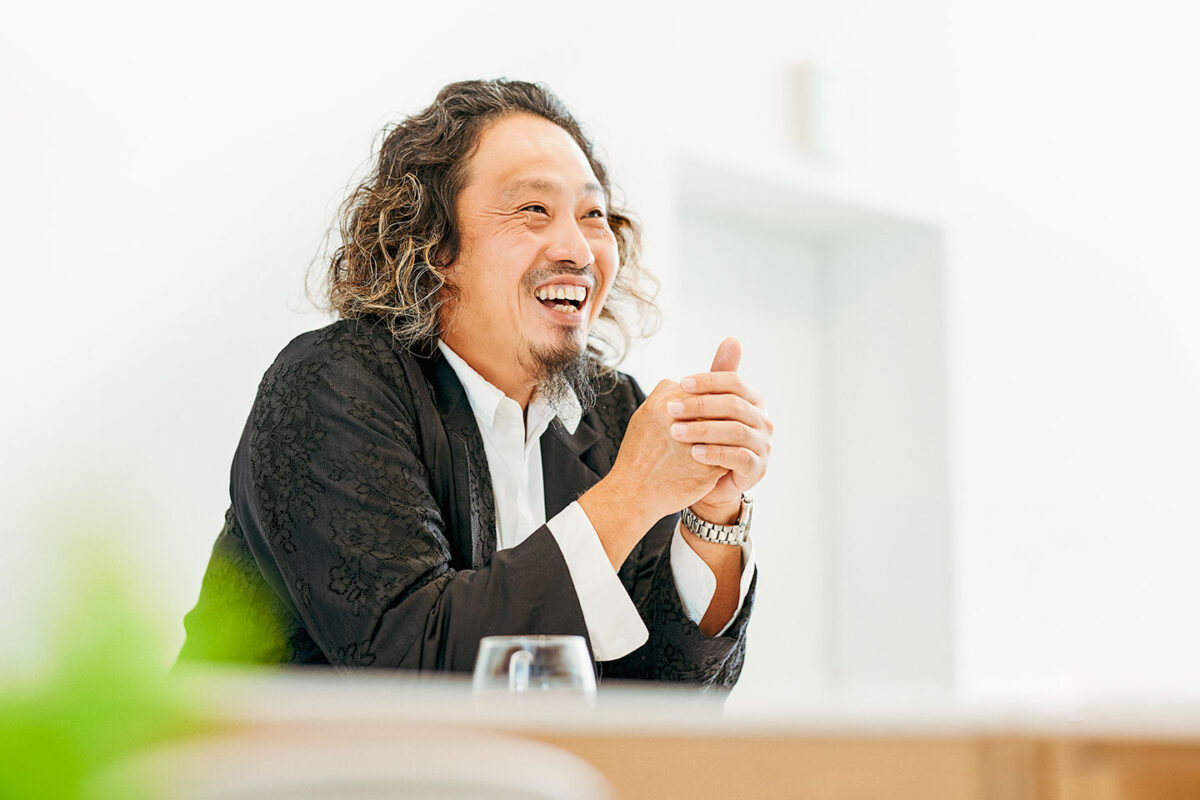
Kasai’s overarching life theme is “liberation from the slave mentality.” He’s not fixated on the system of slavery per se but on the mindset of only doing what others decide and depending on others to the point of blaming them. The core issue he identifies is the slave mentality in humans who, drifting toward ease and justifying themselves with convenient excuses, suppress their own potential, autonomy, and proactivity.
“This was the last promise I made with our late chairman,” Kasai shares. “It’s precisely because people continue to develop proactively and intrinsically that we can solve various difficulties. When we achieve the theme of liberating human nature, we can truly move beyond social structures that have divided, discriminated, and categorized.
Honestly, when my previous company was liquidated, I thought, ‘I’m 47 now. Maybe I’ve climbed one mountain.’ Over my 25-year career, I’d experienced everything from new business development to IPOs, executive roles, and management. But I couldn’t give up, and maybe I still haven’t. I wanted to keep sailing with my comrades. After traveling around the world and visiting various countries, experiencing diverse values, religions, and lifestyles, I realized that I’d been confined to a small world.
By becoming involved with TYPICA, which aims to be the world’s number one in both the quality and quantity of green coffee beans it distributes, I recognized that the mountain I’d climbed was just part of a range of towering peaks. So I have no arrogant intention of applying my past experiences to the coffee industry. As just one challenger and manager, I want to contribute to the sustainable development of businesses, industries, and the world. For that purpose, I aim to always pursue the best while continuously increasing the feasibility of our goals.”












